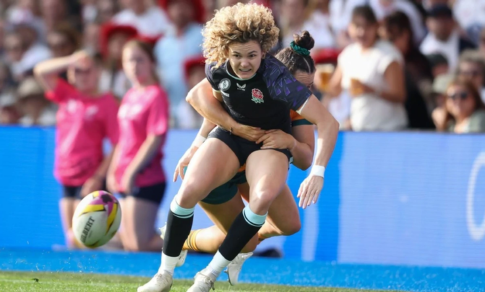The Women’s World Cup has seen its fair share of one-sided contests, but competition director Yvonne Nolan insists they are a natural part of rugby’s evolution, and fans are never likely to complain about “too many tries.”
The group stage concluded on Sunday, with seven of the top eight teams in the world rankings advancing to the quarter-finals, set to kick off this weekend. This edition of the tournament marked the first time the World Cup expanded to 16 teams, a change that contributed to several lopsided scorelines.
The tournament’s most significant victory came as hosts England overwhelmed Samoa 92-3, while a third of all group-stage matches—eight out of 24—featured winning margins of 50 points or more.
Nolan described the group matches as “all very different and entertaining,” emphasizing that the World Cup is about more than just knockouts and finals.
“We are saying goodbye to eight amazing teams. The tournament is about growing the game, inspiring a new wave of fans, and showing players that they are ready to step up,” she said.
The competition highlighted both challenges and milestones for emerging rugby nations. Brazil, making their World Cup debut, lost all three games by at least 60 points but managed to score in every match, while Fiji achieved their first-ever World Cup win with a 28-25 victory over Wales.
Nolan indicated that plans will soon be unveiled to provide smaller nations with more opportunities between tournaments.
“If we expect teams to turn up only every four years, we will not see change. Opportunities exist for teams to improve quickly, and we have seen evidence of that here,” she said.
In the quarter-finals, South Africa, ranked 12th and the lowest-ranked team remaining, will face perennial champions New Zealand. Hosts England, the tournament favourites, are set to take on a Scotland side grappling with contract disputes and uncertainty.
Despite high-scoring games, Nolan noted that fans remain engaged.
“Even at stadiums where teams scored their 10th or 11th try, no one is leaving. Fans might enjoy more close contests, but a mix of styles is what makes the game exciting,” she said.
The group-stage matches drew over 245,000 fans, underscoring the growing popularity of women’s rugby worldwide.








ADD A COMMENT :